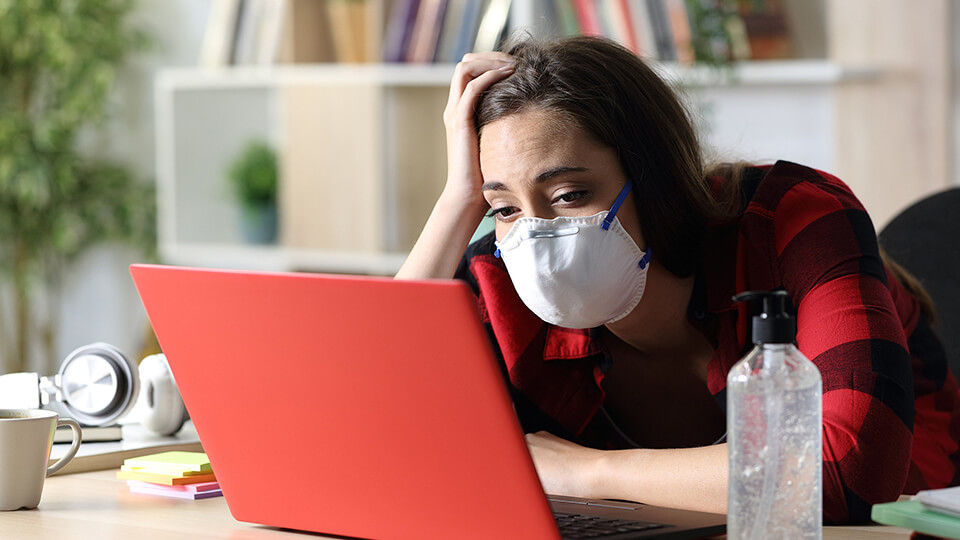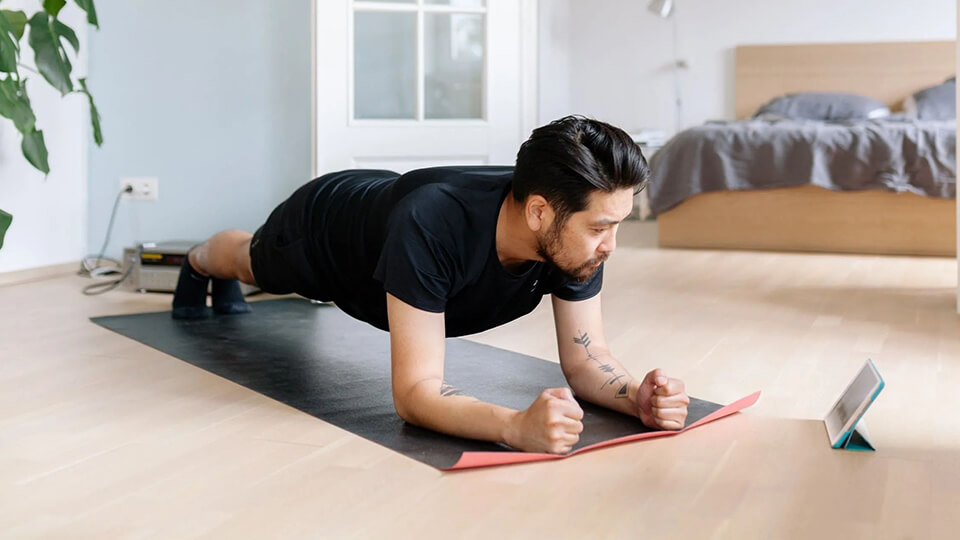How to Deal with Depression During the Pandemic

Covid-19 took the world by surprise, unexpectedly wreaking havoc on the lives of just about everyone. Now masks must be worn in all public places, social distancing must be practiced constantly, and many formerly in-person activities have switched to virtual. If you are having a difficult time dealing with the pandemic and its restrictions as well as the probability of contracting Covid-19, then you aren’t alone. Statistics show that cases of depression and anxiety have tripled since the onset of the pandemic. There has also been an increase in alcoholism and drug use, including drug overdoses leading to deaths, since the pandemic begun. Fortunately, there are some effective ways to manage your thoughts and feelings, and hopefully reverse your depression in the process. Here are some strategies that might work for you:
Write down your feelings
It may seem time-consuming and boring, but regularly writing down your feelings in a journal can dramatically decrease depression, and even anxiety. Sometimes, people feel they have no one to discuss their problems with. In many cases, keeping your feelings bottled up inside only perpetuates depression and anxiety, making you feel worse. Journaling about your thoughts and feelings provides you with a way to unbottle those toxic thoughts and feelings, which can encourage healing. Even if no one reads the journal entries, journaling is still a great way to stop your emotions from making you ill. You can choose to purchase an attractive journal to write in, but there are also many free and paid journaling apps available, if you prefer.
Consider seeking professional help
There should be no shame in seeking professional help if you feel your depression is getting the best of you. In fact, you should be proud of yourself for being brave enough to admit that you need professional help. A therapist or psychologist can help you work through your feelings by teaching you a healthier way of managing your life. Depending on the severity of your symptoms, as well as whether your depression is responding to therapy alone, you might consider medication. Medication doesn’t have to be taken long-term, as you may only need it until the pandemic is over. If you’re not sure whether you could benefit from medication, your therapist can help you decide. If your therapist believes medication might be beneficial, he or she can refer you to a psychiatrist who can prescribe you the most effective medication.
Begin a new exercise program

You don’t have to be on a weight reduction program in order to exercise. Exercise promotes health in everyone, regardless of size. Not only does exercise promote physical health, but it promotes mental health as well. Exercise can ease depression and anxiety by inducing endorphins in the brain. Endorphins are feel-good hormones that are produced, and they can work wonders at reversing depression. Of course, before beginning any new exercise regimen, you should seek the advice of your doctor. Your doctor can advise you of any restrictions you should take so your exercise program can be as trouble-free as possible.
Learn a new hobby
It’s likely that you have had significantly more free time since the pandemic started, since there are fewer places to go. Too much free time isn’t always good for individuals suffering from depression or other mental health issues. Focusing on learning a new hobby can work wonders for combating depression. Not only can learning a new hobby help you pass the time when you’re bored and possibly feeling despondent, but a new hobby can promote relaxation, increase self-esteem and much more. If you’re not sure what hobby to focus on, why not conduct some research? You could also search online for some ideas. Some popular choices of new hobbies to try are cooking, baking, puzzles, latch hook, gardening, and much more. You might be surprised at how much you might enjoy a new hobby, and how therapeutic it can be. If one hobby doesn’t fit, then try some others. The sky is the limit as to what you can choose.
Keep a gratitude journal
Even if you decide to write down your feelings in a regular journal, a gratitude journal can add additional benefit. A gratitude journal is simply a book (or app, if you prefer to journal electronically) that encourages you to focus on the things that you’re grateful for. Keeping a gratitude journal is a simple but powerful exercise that can be done in as little as five minutes a day. These things that you write about being grateful for can be small, like a beautiful sunset or a nature walk. Acknowledging the things in life that you’re grateful for can help you keep a written record that you can refer to whenever you’re experiencing anxiety and depression. This type of journal can help you see that there are, in fact, positive things in your life. This realization can encourage you to seek even more positivity and keep you from dwelling on the negative aspects of your life. You can improve your outlook on life by keeping a gratitude journal, dramatically improving your depression in the process.
There will always be events in life that can potentially lead to depression. However, if you take a proactive approach by implementing these tips as soon as you notice symptoms, you can nip the depression in the bud before it reaches unbearable proportions. By tackling depressing as soon it surfaces, you increase your chances of successfully defeating it and reclaiming your life.




